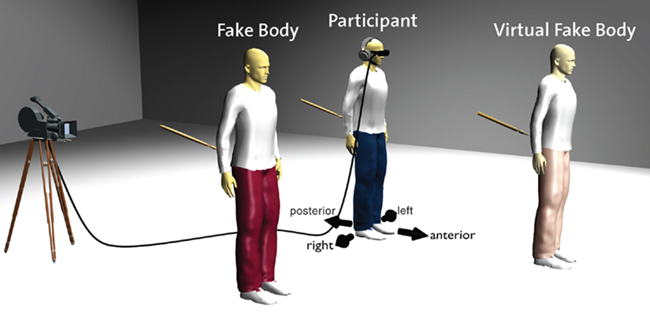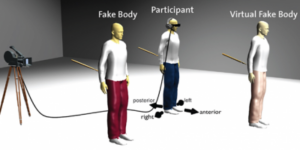vnorb
When a new technology gets developed, some of the consequences of such technology are always up for debate and often enable very and unexpected different applications. Just think of nuclear power versus nuclear weapons. As it turns out, even nuclear power is not seen by everyone as a real positive outcome either. Nevertheless, new technologies often enable a wide range of applications some of them are more desirable by the public than others.
It’s no surprise that augmented and virtual reality will also fall into this category and two German scientists, Michael Madary and Thomas K. Metzinger from the Johannes Gutenberg Univeristy of Mainz, are suggesting some ground rules on how to use these technologies going forward. This ‘code of conduct’ is proposed as the basis for all further development of these technologies and applies not only to applications but also research into this new field. An article was published in “Frontiers in Robotics and AI” and is very good reading for anyone interested in this topic. (http://tinyurl.com/z2ve246)

The authors clearly support further research into virtual reality, but also warn about the risks and the potential damage this technology could cause. While we may immediately think of the nightmares such technology has created in science fiction movies, their vision is much more focused on today’s potential applications. They see six areas in the research arena to watch out for, as well as four areas in consumer applications.
Recommendation for the research ethics of VR
- Non-Maleficence (not causing harm – like the doctors’ hippocratic oath – Man. Ed.)
- Informed consent
- Transparency and media ethics
- Dual use
- Internet research
- The limitations of a code of conduct
Recommendations for the VR use in the general public
- Long term immersion
- Increasing virtualization of social interactions
- Risky content
- Privacy
This article goes way beyond the typical ‘we are raising concerns’ of scientists. The authors discuss the results of other psychological studies and how VR may increase the consequences of such behavioral factors. For example they discuss that the outcome of the “Stanford Prison Experiment’ and others to show that artificial environments may create very real changes in interpersonal behavior. VR as a technology may increase the susceptibility of the human mind to such changes and may even create long lasting changes.
Analyst Comment
Looking at today’s use of flying military drones, we can see how a ‘video war game’ mentality can make people take actions that people may not take if they were there in person and be confronted with the consequences. This change in behavior can be expanded to almost every aspect of our lives including social interactions, buying behavior, political orientation, etc. Indeed VR has the potential to shape more of our lives in coming decades than we may think.
Of course, there is also the drive of the start-up companies that do not want to wait for scientists to find out what works and what we should leave alone. In some parts of the world, rules may differ from other parts depending on the approach of the respective governments. This is very similar to the differences in rules on the privacy of smartphones and web browsing or the safety of using head up displays in cars. What is acceptable or not depends on the view of the regulatory powers and how the respective society deals with change in general. – NH
We reported in September in our article on the 3IT meeting that research on the use of AR and VR for long sessions of up to six hours. If users spend time interacting with the content over long periods, they can develop symptoms “close to jetlag” (http://tinyurl.com/jspvpgt). At the event, it was recommended that sessions are limited to 90 minutes. There’s still a lot to learn in VR! (BR)

